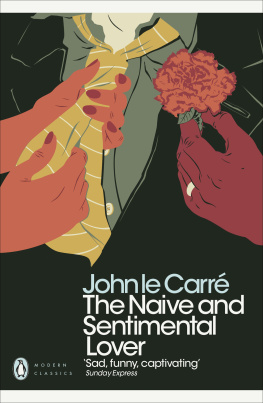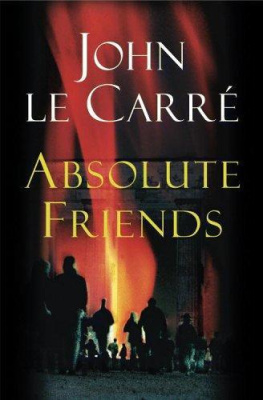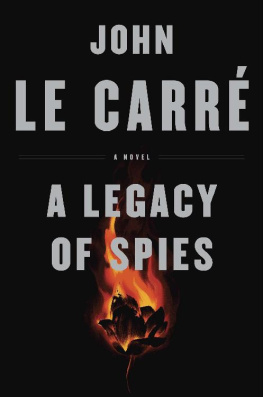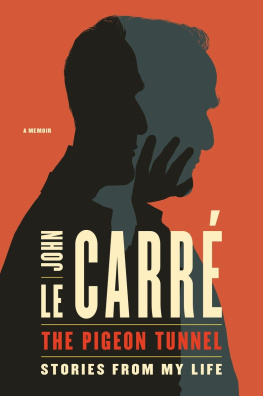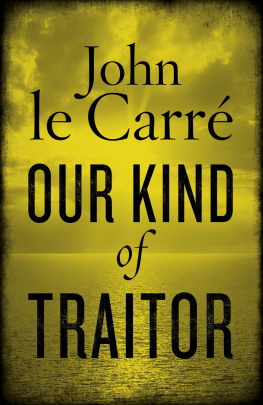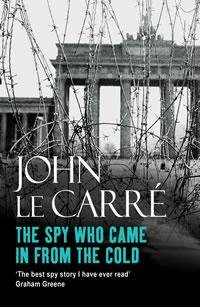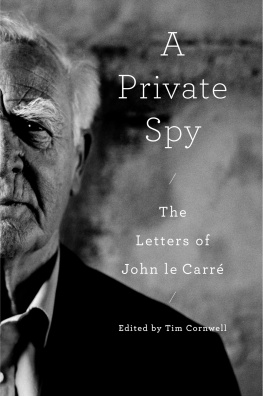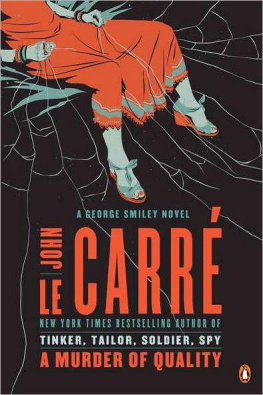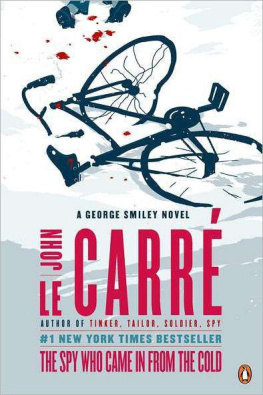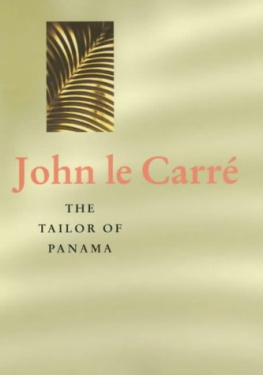John le Carré - A Murder of Quality
Here you can read online John le Carré - A Murder of Quality full text of the book (entire story) in english for free. Download pdf and epub, get meaning, cover and reviews about this ebook. genre: Detective and thriller. Description of the work, (preface) as well as reviews are available. Best literature library LitArk.com created for fans of good reading and offers a wide selection of genres:
Romance novel
Science fiction
Adventure
Detective
Science
History
Home and family
Prose
Art
Politics
Computer
Non-fiction
Religion
Business
Children
Humor
Choose a favorite category and find really read worthwhile books. Enjoy immersion in the world of imagination, feel the emotions of the characters or learn something new for yourself, make an fascinating discovery.

- Book:A Murder of Quality
- Author:
- Genre:
- Rating:4 / 5
- Favourites:Add to favourites
- Your mark:
- 80
- 1
- 2
- 3
- 4
- 5
A Murder of Quality: summary, description and annotation
We offer to read an annotation, description, summary or preface (depends on what the author of the book "A Murder of Quality" wrote himself). If you haven't found the necessary information about the book — write in the comments, we will try to find it.
A Murder of Quality — read online for free the complete book (whole text) full work
Below is the text of the book, divided by pages. System saving the place of the last page read, allows you to conveniently read the book "A Murder of Quality" online for free, without having to search again every time where you left off. Put a bookmark, and you can go to the page where you finished reading at any time.
Font size:
Interval:
Bookmark:
Foreword
There are probably a dozen great schools of whom it will be confidently asserted that Carne is their deliberate image. But he who looks among their common rooms for the D'Arcys, Fieldings, and Hechts will search in vain.
Chapter 1Black Candles
The greatness of Carne School has been ascribed by common consent to Edward VI, whose educational zeal is ascribed by history to the Duke of Somerset. But Carne prefers the respectability of the monarch to the questionable politics of his adviser, drawing strength from the conviction that Great Schools, like Tudor Kings, were ordained in Heaven.
And indeed its greatness is little short of miraculous. Founded by obscure monks, endowed by a sickly boy king, and dragged from oblivion by a Victorian bully, Carne had straightened its collar, scrubbed its rustic hands and face and presented itself shining to the courts of the twentieth century. And in the twinkling of an eye, the Dorset bumpkin was London's darling: Dick Whittington had arrived. Carne had parchments in Latin, seals in wax, and Lammas Land behind the Abbey. Carne had property, cloisters and woodworm, a whipping block and a line in the Doomsday Bookthen what more did it need to instruct the sons of the rich?
And they came; each Half they came (for terms are not elegant things), so that throughout a whole afternoon the trains would unload sad groups of black-coated boys on to the station platform. They came in great cars that shone with mournful purity. They came to bury poor King Edward, trundling handcarts over the cobbled streets or carrying tuck boxes like little coffins. Some wore gowns, and when they walked they looked like crows, or black angels come for the burying. Some followed singly like undertakers' mutes, and you could hear the clip of their boots as they went. They were always in mourning at Carne; the small boys because they must stay and the big boys because they must leave, the masters because respectability was underpaid; and now, as the Lent Half (as the Easter term was called) drew to its end, the cloud of gloom was as firmly settled as ever over the grey towers of Carne.
Gloom and the cold. The cold was crisp and sharp as flint. It cut the faces of the boys as they moved slowly from the deserted playing fields after the school match. It pierced their black topcoats and turned their stiff, pointed collars into icy rings round their necks. Frozen, they plodded from the field to the long walled road which led to the main tuck shop and the town, the line gradually dwindling into groups, and the groups into pairs. Two boys who looked even colder than the rest crossed the road and made their way along a narrow path which led towards a distant but less populated tuck shop.
'I think I shall die if ever I have to watch one of those beastly rugger games again. The noise is fantastic,' said one. He was tall with fair hair, and his name was Caley.
'People only shout because the dons are watching from the pavilion,' the other rejoined; 'that's why each house has to stand together. So that the house dons can swank about how loud their houses shout.'
'What about Rode?' asked Caley. 'Why does he stand with us and make us shout, then? He's not a house don, just a bloody usher.'
'He's sucking up to house dons all the time. You can see him in the quad between lessons buzzing round the big men. All the junior masters do.' Caley's companion was a cynical red-haired boy called Perkins, Captain of Fielding's house.
'I've been to tea with Rode,' said Caley.
'Rode's hell. He wears brown boots. What was tea like?'
'Bleak. Funny how tea gives them away. Mrs Rode's quite decent, thoughhomely in a plebby sort of way: doyleys and china birds. Food's good: Women's Institute, but good.'
'Rode's doing Corps next Half. That'll put the lid on it. He's so keen, bouncing about all the time. You can tell he's not a gentleman. You know where he went to school?'
'No.'
'Branxome Grammar. Fielding told my Mama, when she came over from Singapore last Half.'
'God. Where's Branxome?'
'On the coast. Near Bournemouth. I haven't been to tea with anyone except Fielding.' Perkins added after a slight pause, 'You get roast chestnuts and crumpets. You're never allowed to thank him, you know. He says emotionalism is only for the lower classes. That's typical of Fielding. He's not like a don at all. I think boys bore him. The whole house goes to tea with him once a Half, he has us in turn, four at a time, and that's about the only time he talks to most men.'
They walked on in silence for a while until Perkins said:
'Fielding's giving another dinner party tonight.'
'He's pushing the boat out these days,' Caley replied, with disapproval. 'Suppose the food in your house is worse than ever?'
'It's his last Half before he retires. He's entertaining every don and all the wives separately by the end of the Half. Black candles every evening. For mourning. Hells extravagant.'
'Yes. I suppose it's a sort of gesture.'
'My Pater says he's a queer.'
They crossed the road and disappeared into the tuck shop, where they continued to discuss the weighty affairs of Mr Terence Fielding, until Perkins drew their meeting reluctantly to a close. Being a poor hand at science, he was unfortunately obliged to take extra tuition in the subject.
The dinner party to which Perkins had alluded that afternoon was now drawing to a close. Mr Terence Fielding, senior housemaster of Carne, gave himself some more port and pushed the decanter wearily to his left. It was his port, the best he had. There was enough of the best to last the Halfand after that, be damned. He felt a little tired after watching the match, and a little drunk, and a little bored with Shane Hecht and her husband. Shane was so hideous. Massive and enveloping, like a faded Valkyrie. All that black hair. He should have asked someone else. The Snows for instance, but he was too clever. Or Felix D'Arcy, but D'Arcy interrupted. Ah well, a little later he would annoy Charles Hecht, and Hecht would get in a pet and leave early.
Hecht was fidgeting, wanting to light his pipe, but Fielding damn well wouldn't have it. Hecht could have a cigar if he wanted to smoke. But his pipe could stay in his dinner-jacket pocket, where it belonged, or didn't belong, and his athletic profile could remain unadorned.
'Cigar, Hecht?'
'No thanks, Fielding. I say, do you mind if I'
'I can recommend the cigars. Young Havelake sent them from Havana. His father's ambassador there, you know.'
'Yes, dear,' said Shane tolerantly; 'Vivian Havelake was in Charles's troop when Charles was commandant of the Cadets.'
'Good boy, Havelake,' Hecht observed, and pressed his lips together to show he was a strict judge.
'It's amusing how things have changed.' Shane Hecht said this rapidly with a rather wooden smile, as if it weren't really amusing. 'Such a grey world we live in, now.
'I remember before the war when Charles inspected the Corps on a white horse. We don't do that kind of thing now, do we? I've got nothing against Mr Iredale as commandant, nothing at all. What was his regiment, Terence, do you know? I'm sure he does it very nicely, whatever they do now in the Corpshe gets on so well with the boys, doesn't he? His wife's such a nice person I wonder why they can never keep their servants. I hear Mr Rode will be helping out with the Corps next Half.'
'Poor little Rode,' said Fielding slowly; 'running about like a puppy, trying to earn his biscuits. He tries so hard; have you seen him cheering at school matches? He'd never seen a game of rugger before he came here, you know. They don't play rugger at grammar schoolsit's all soccer. Do you remember when he first came, Charles? It was fascinating. He lay very low at first, drinking us in: the games, the vocabulary, the manners. Then, one day it was as if he had been given the power of speech, and he spoke in our language. It was amazing, like plastic surgery. It was Felix D'Arcy's work of courseI've never seen anything quite like it before.'
Font size:
Interval:
Bookmark:
Similar books «A Murder of Quality»
Look at similar books to A Murder of Quality. We have selected literature similar in name and meaning in the hope of providing readers with more options to find new, interesting, not yet read works.
Discussion, reviews of the book A Murder of Quality and just readers' own opinions. Leave your comments, write what you think about the work, its meaning or the main characters. Specify what exactly you liked and what you didn't like, and why you think so.

